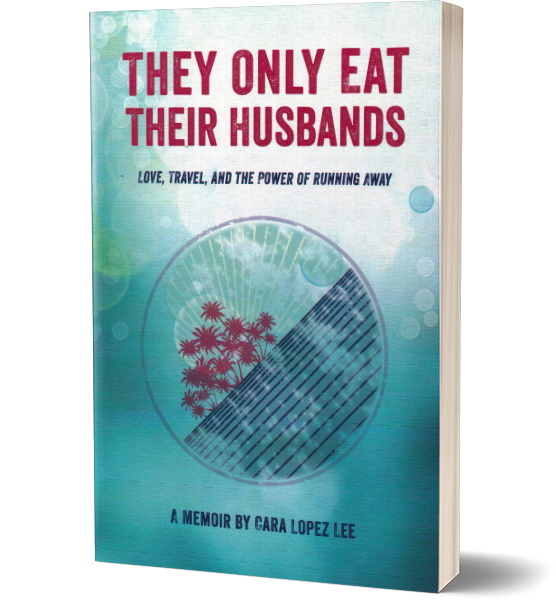I’ve just finished teaching a Lighthouse Young Writers Workshop at a Denver middle school, and after just eight-weeks I’m already an addict. I’ve discovered that there is as much joy in helping others find their writing voice as there is in expressing my own. Yet I’ll confess that I used to fear middle-schoolers. “They’re all volition, and no control,” I’ve sometimes explained to friends.

There is as much joy in helping others find their writing voice as there is in expressing my own.
I remember middle school as perhaps the most terrifying time in my life: on my first day, a girl I’d never met tossed the contents of my purse around the gym, she laughed at the Kleenex my mom had stuffed inside, as my other personal odds and ends flew overhead from hand to hand. I wondered what power she had, and I lacked, that made a roomful of strangers decide to humiliate me.
I remember while leaving school one day, my friend and I heard a loud crash and a scream, and saw a bicycle tire roll past. We turned and ran toward a boy who lay moaning and half-conscious, tangled in half a bicycle in the street, his face a mass of blood. A bully had decided it would be funny to pull out the bolt that held his front tire. Nearby, a teacher picked up the boy’s teeth from the road. I suppose he has two false front teeth to this day.
Worst of all, I remember the poem I once wrote about my favorite teacher, because I thought it was a funny rhyme:
“Mr. _____ is very conceited.
Not very loved,
And not very needed…”
This wise and forgiving teacher made me read the words aloud. I didn’t realize until I heard myself saying them just how cruel they were. Even now I feel the hot tears of shame threatening. Why do I share this with you? I want you to understand why middle school kids used to terrify me.
Yet, I also understand that they’re probably just as scared of everyone else as everyone else is of them. Aren’t we all? Throughout our lives the world we move through keeps growing, the people around us keep growing, and yet so often we still feel small inside.
So, when I walked in to teach my class, it was partly with the hope that I would overcome my fear, peering through it to see the unique gifts my students carried within. And it was partly with the hope that I would help them overcome their own fear of peering into themselves, and each other, to find those same gifts. Most of all, I hoped to encourage them to do what is hard for all of us, but perhaps hardest when we’re young: to fight the instinct to hide the thing that makes us different, to fight the urge to pretend to be invincible. Because the very things that make us a target in the halls, are what make up the genius of the writing I love best: vulnerability, eccentricity, honesty.

I hoped to encourage them to do what is hard for all of us: to fight the instinct to hide the thing that makes us different, to fight the urge to pretend to be invincible.
I advised them to respect each other’s work, but I discovered that the warning they needed more was to respect their own work. It was hard to convince several kids not to start every reading with an apology: “This is kind of cheesy…” or “I know this is corny…” or “This isn’t as good as those other ones…” Haven’t we all had to still those voices? Every time I cried out – “Stop” “Uh-uh-uh” “Noooo…” – I felt as if I were wielding a sword against some invisible dragon that swoops over the heads of all us writers, breathing fire, trying to incinerate everything we create.

I advised them to respect each other’s work, but I discovered that the warning they needed more was to respect their own work.
Yet though the dragon threatened, the kids kept creating, as if they couldn’t help it. One girl read a story that started with, “The music is playing again,” and it took another student to explain to me that it was a metaphor for her frustration with some of the noise and chaos created by other kids at school. I was stunned at the complexity of it. One boy spoke of soldiers marching in lockstep to an adolescent conformity that resembled Nazism – that guy already has his own blog. Another student created a garden that left us all wishing we could sit by the water and flowers and dream. Another gave us a verbal taste of her mother’s spicy homemade salsa. Yet another explained how she trained her dog – I didn’t know that you had to coax a dog to tip off-balance to teach it to “shake hands,” did you? She gave me an odd look when I guffawed at the part where she suggested that pet owners get off their “lazy butts” if they want a well-trained dog.
When one girl told us her ski instructor was a master of schadenfreude, someone asked what that was. I was still trying to construct a good answer, when another girl said, “That’s when someone laughs when bad things happen to other people.” Just who was teaching who – I mean “whom”?
Everyone was supposed to write a blog post by the final day. Not everyone turned one in, and it’s hard to blame them – to publicize one’s private thoughts can give anyone an attack of nerves, or at least ambivalence. But I caught a breath of everyone’s voice along the way, and I feel as proud as a parent of “my” talented kids… even though I’ve had little to do with their natural creativity. You can find three of their posts on the Lighthouse Young Writers’ Blog. I think you’ll agree that each does, indeed, have a unique voice, and that it’s their willingness to dig deep for the odd stuff, the painful stuff, the scary stuff that makes the writing good. On our last day, I had an inkling of the worry parents must feel, as I said goodbye, hoping that as they go on to higher education, careers, and adult lives, they’ll find the strength to slay the nay-saying dragon every time he sneaks up on them to say “cheesy.”




